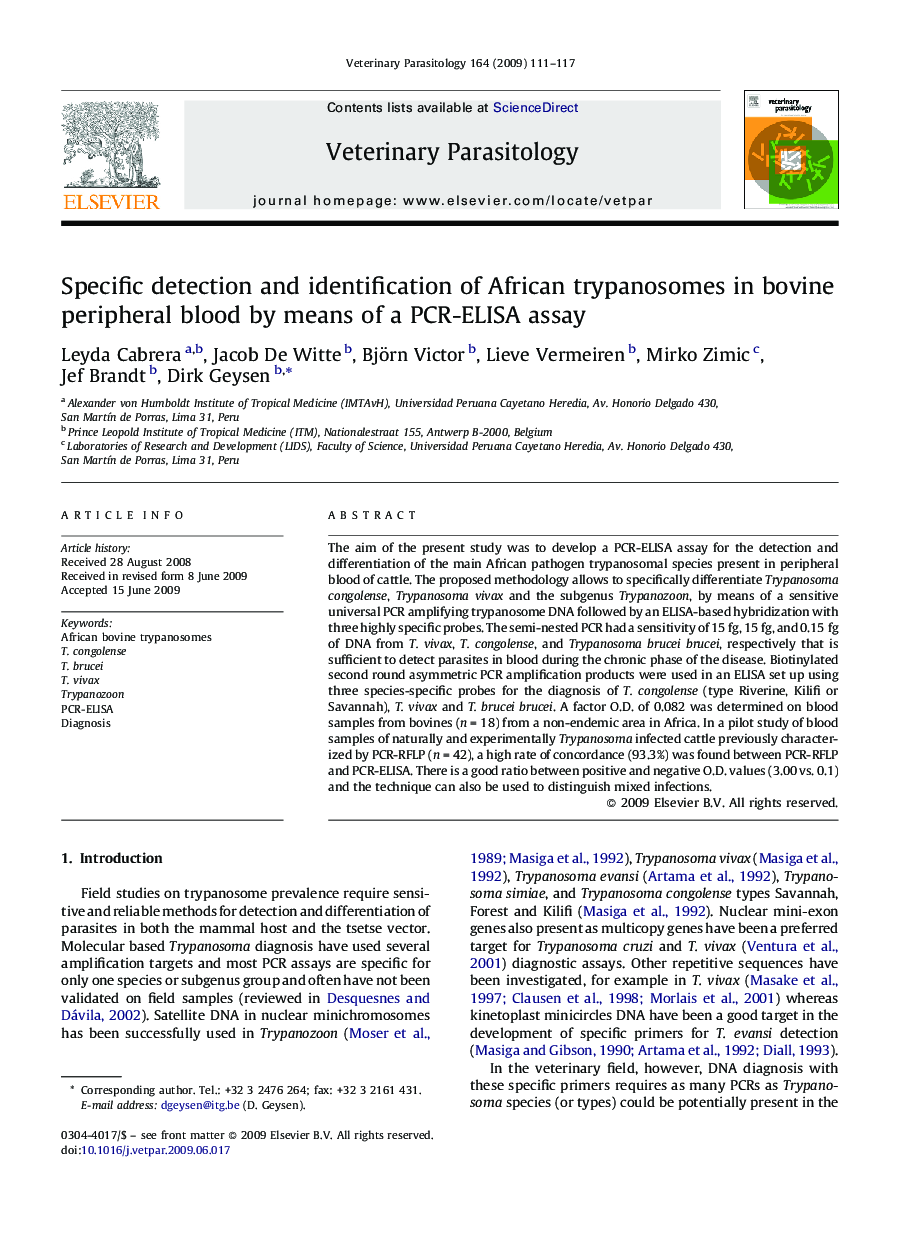| Article ID | Journal | Published Year | Pages | File Type |
|---|---|---|---|---|
| 2470929 | Veterinary Parasitology | 2009 | 7 Pages |
The aim of the present study was to develop a PCR-ELISA assay for the detection and differentiation of the main African pathogen trypanosomal species present in peripheral blood of cattle. The proposed methodology allows to specifically differentiate Trypanosoma congolense, Trypanosoma vivax and the subgenus Trypanozoon, by means of a sensitive universal PCR amplifying trypanosome DNA followed by an ELISA-based hybridization with three highly specific probes. The semi-nested PCR had a sensitivity of 15 fg, 15 fg, and 0.15 fg of DNA from T. vivax, T. congolense, and Trypanosoma brucei brucei, respectively that is sufficient to detect parasites in blood during the chronic phase of the disease. Biotinylated second round asymmetric PCR amplification products were used in an ELISA set up using three species-specific probes for the diagnosis of T. congolense (type Riverine, Kilifi or Savannah), T. vivax and T. brucei brucei. A factor O.D. of 0.082 was determined on blood samples from bovines (n = 18) from a non-endemic area in Africa. In a pilot study of blood samples of naturally and experimentally Trypanosoma infected cattle previously characterized by PCR-RFLP (n = 42), a high rate of concordance (93.3%) was found between PCR-RFLP and PCR-ELISA. There is a good ratio between positive and negative O.D. values (3.00 vs. 0.1) and the technique can also be used to distinguish mixed infections.
